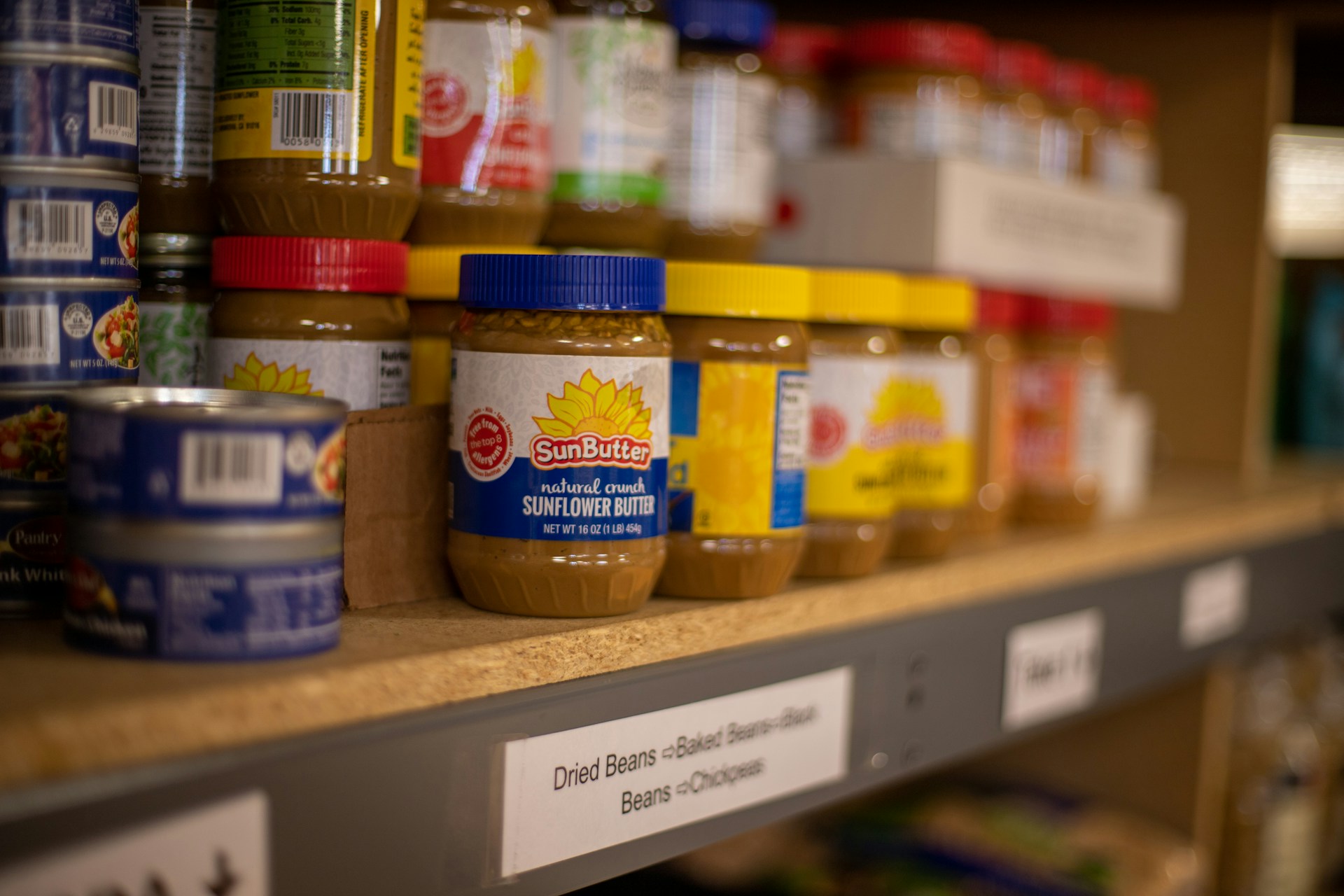The Influence of Gender on College Students’ Nutrition Knowledge and External Eating Style toward Healthy Food Choices
Pengaruh Jenis Kelamin dalam Pengetahuan Gizi dan Gaya Makan Eksternal terhadap Pilihan Makanan Sehat pada Mahasiswa

Background: In Indonesia, the prevalence of obesity remains on the rise, with 35.4% of the population experiencing it. Consuming unhealthy food is one of the influential causes, typically affected by nutritional knowledge and external eating style.
Objectives: This study aimed to investigate whether gender, nutrition knowledge, and external eating style influence healthy food choice.
Methods: The Behavioral measurement research with quasi experimental design were adopted, recruiting 123 participants selected purposively. The study was conducted in a psychology laboratory using the Fake Food Buffet (FFB) instrument for food choices, the Nutrition Knowledge Questionnaire (NKQ) scale for nutritional knowledge and the Dutch Eating Behavior Questionnaire (DEBQ) scale for external eating styles. The data collected were then analyzed using a generalized linear model.
Results: Approximately 61.8% of the participants have a normal Body Mass Index (BMI). Gender and nutrition knowledge showed a negative relationship with healthy food choices (p-value = 0.043; η2 = 0.035). Females having good nutrition knowledge tend to make less healthy food choices compared to males. Additionally, the interaction between gender, nutrition knowledge, and external eating style shows a positive correlation with healthy food choices (p-value = 0.036; η2 = 0.038). Females are more likely to choose healthy food compared to males.
Conclusions: The results implied that nutrition knowledge and external eating style influence students’ healthy food choices. Gender may affect consistency in making healthy food choices among students’ eating behavior. Therefore, future research might have further observation on people’s eating behavior.
Kemenkes RI. Hasil Utama SKI 2023. Kemenkes RI https://www.badankebijakan.kemkes.go.id/daftar-frequently-asked-question-seputar-hasil-utama-ski-2023/hasil-utama-ski-2023/ (2023).
Sari, S. N., Helma, H. & Subhan, M. Faktor-Faktor yang Menyebabkan Obesitas Berisiko pada Mahasiswa Matematika FMIPA UNP Menggunakan Analisis Faktor. J. Math. UNP 6, (2021). http://dx.doi.org/10.24036/unpjomath.v6i1.11564.
Powell-Wiley, T. M. et al. Obesity and Cardiovascular Disease A Scientific Statement From the American Heart Association. Circulation vol. 143 (2021). https://doi.org/10.1161/CIR.000000000000097.
Ramadhani, E. T. & Sulistyorini, Y. Hubungan kasus obesitas dengan hipertensi di provinsi Jawa Timur tahun 2015-2016. J. Berk. Epidemiol. 6, (2018). https://doi.org/10.20473/jbe.V6I12018.35-42.
Avgerinos, K. I., Spyrou, N., Mantzoros, C. S. & Dalamaga, M. Obesity and cancer risk: Emerging biological mechanisms and perspectives. Metabolism: Clinical and Experimental vol. 92 at https://doi.org/10.1016/j.metabol.2018.11.001 (2019). https://doi.org/10.1016/j.metabol.2018.11.001.
Akkartal, Ş. & Gezer, C. Is Nutrition Knowledge Related to Diet Quality and Obesity? Ecol. Food Nutr. 59, (2020). https://doi.org/10.1080/03670244.2019.1675654.
Wongprawmas, R. et al. Food choice determinants and perceptions of a healthy diet among Italian consumers. Foods 10, (2021). https://doi.org/10.3390/foods10020318.
Iyassu, A. et al. The influence of adolescents’ nutrition knowledge and school food environment on adolescents’ dietary behaviors in urban Ethiopia: A qualitative study. Matern. Child Nutr. 20, (2024). https://doi.org/10.1111/mcn.13527.
Kigaru, D. M. D., Loechl, C., Moleah, T., Macharia-Mutie, C. W. & Ndungu, Z. W. Nutrition knowledge, attitude and practices among urban primary school children in Nairobi City, Kenya: A KAP study. BMC Nutr. 1, 1–8 (2015). https://doi.org/10.1186/s40795-015-0040-8.
Hu, P. et al. Knowledge, attitude, and behaviors related to eating out among university students in China. Int. J. Environ. Res. Public Health 13, (2016). https://doi.org/10.3390/ijerph13070696.
Lestari, P. Hubungan Pengetahuan Gizi, Asupan Makanan dengan Status Gizi Siswi Mts Darul Ulum. Sport Nutr. J. 2, (2020). https://doi.org/10.15294/spnj.v2i2.39761.
Priya, R. & Sinha, M. Nutritional knowledge and nutritional status amongst university students. IP J. Nutr. Metab. Heal. Sci. 3, (2020). https://doi.org/10.18231/j.ijnmhs.2020.005.
Berliandita, A. A. & Hakim, A. A. Analisis Pengetahuan Gizi dan Perilaku Makan pada Mahasiswa Angkatan 2017 Prodi Ilmu Keolahragaan Unesa. Indones. J. Kinanthropology 1, 8–20 (2021). https://doi.org/10.26740/ijok.v1n1.p8-20.
van Strien, T., Frijters, J. E. R., Bergers, G. P. A. & Defares, P. B. The Dutch Eating Behavior Questionnaire (DEBQ) for assessment of restrained, emotional, and external eating behavior. Int. J. Eat. Disord. 5, (1986). https://doi.org/10.1002/1098-108X(198602)5:2<295::AID-EAT2260050209>3.0.CO;2-T.
Okumus, B., Chaulagain, S. & Giritlioglu, I. The Effects of Demographics and Nutritional Knowledge on Hotel Employees’ External and Emotional Eating. Journal of Culinary Science and Technology vol. 20 at https://doi.org/10.1080/15428052.2020.1848682 (2022). https://doi.org/10.1080/15428052.2020.1848682.
Benbaibeche, H., Saidi, H., Bounihi, A. & Koceir, E. A. Emotional and external eating styles associated with obesity. J. Eat. Disord. 11, (2023). https://doi.org/10.1186/s40337-023-00797-w.
Paans, N. P. G. et al. Depression and eating styles are independently associated with dietary intake. Appetite 134, (2019). https://doi.org/10.1016/j.appet.2018.12.030.
Kakoschke, N., Kemps, E. & Tiggemann, M. Differential effects of approach bias and eating style on unhealthy food consumption in overweight and normal weight women. Psychol. Heal. 32, (2017). https://doi.org/10.1080/08870446.2017.1327587.
Kakoschke, N., Kemps, E. & Tiggemann, M. External eating mediates the relationship between impulsivity and unhealthy food intake. Physiol. Behav. 147, (2015). https://doi.org/10.1016/j.physbeh.2015.04.030.
Gaylis, J. B., Levy, S. S., Kviatkovsky, S., DeHamer, R. & Hong, M. Y. Relationships between physical activity, food choices, gender and BMI in Southern Californian teenagers. Int. J. Adolesc. Med. Health 31, (2017). https://doi.org/10.1515/ijamh-2017-0067.
Cheng, L. & Liu, Z. Differences of food intakes with gender, the year in college and body mass index among university students in Beijing, China. Br. Food J. 121, (2019). https://doi.org/10.1108/BFJ-01-2019-0008.
Zaborowicz, K. et al. Evaluation of selected dietary behaviours of students according to gender and nutritional knowledge. Rocz. Państwowego Zakładu Hig. 67, (2016).
Kementnrian, K. FactSheet_Obesitas_Kit_Informasi_Obesitas.pdf. Epidemi Obesitas 1–8 at chrome-extension://efaidnbmnnnibpcajpcglclefindmkaj/https://www.researchgate.net/profile/Lia-Karo/publication/357366457_Peran_Kementerian_Kesehatan_dalam_Menangani_Masalah_Obesitas_pada_Masa_Pandemi_COVID-19/links/61ca99f2da5d105e5500eaaf/Peran-Kementeria (2021).
Lombardo, M. et al. Gender differences in taste and foods habits. Nutr. Food Sci. 50, 229–239 (2020). https://doi.org/10.1108/NFS-04-2019-0132.
Smaira, F. I. et al. Poor Eating Habits and Selected Determinants of Food Choice Were Associated With Ultraprocessed Food Consumption in Brazilian Women During the COVID-19 Pandemic. Front. Nutr. 8, 1–8 (2021). https://doi.org/10.3389/fnut.2021.672372.
Tarabashkina, L., Quester, P. & Crouch, R. Exploring the moderating effect of children’s nutritional knowledge on the relationship between product evaluations and food choice. Soc. Sci. Med. 149, (2016). https://doi.org/10.1016/j.socscimed.2015.11.046.
Kabir, R., Ozkaya, A. & Ozkaya, S. Assessment of salt intake behaviour among undergraduate health care students studying in London. Int. J. Community Med. Public Heal. (2016) doi:10.18203/2394-6040.ijcmph20163354.
Erdfelder, E., FAul, F., Buchner, A. & Lang, A. G. Statistical power analyses using G*Power 3.1: Tests for correlation and regression analyses. Behav. Res. Methods 41, (2009). https://doi.org/10.3758/BRM.41.4.1149 .
Bucher, T., van der Horst, K. & Siegrist, M. The fake food buffet - a new method in nutrition behaviour research. Br. J. Nutr. 107, (2012). https://doi.org/10.1017/S000711451100465X.
Parmenter, K. & Wardle, J. Development of a general nutrition knowledge questionnaire for adults. Eur. J. Clin. Nutr. 53, (1999). https://doi.org/10.1038/sj.ejcn.1600726.
Kosendiak, A., Król, M., Ligocka, M. & Kepinska, M. Eating habits and nutritional knowledge among amateur ultrarunners. Front. Nutr. 10, (2023). https://doi.org/10.3389/fnut.2023.1137412.
Ilori, T. & Sanusi, R. Nutrition-related knowledge, practice, and weight status of patients with chronic diseases attending a district hospital in Nigeria. J. Fam. Med. Prim. Care 11, (2022). https://doi.org/10.4103/jfmpc.jfmpc_607_21.
Muharrani, N. P., Achmad, E. K. & Sudiarti, T. Effects of Restrained, External, and Emotional Eating Styles on Weight Gain Among Female Students at Faculty of Public Health, Universitas Indonesia. KnE Life Sci. 4, 8 (2018). 10.18502/kls.v4i1.1361.
Wood, W. & Rünger, D. Psychology of habit. Annu. Rev. Psychol. 67, (2016). https://doi.org/10.1146/annurev-psych-122414-033417.
Abraham, S., R. Noriega, B. & Shin, J. Y. College students eating habits and knowledge of nutritional requirements. J. Nutr. Hum. Heal. 02, (2018). 10.35841/nutrition-human-health.2.1.13-17.
Muna, N. I. & Mardiana, M. Faktor-Faktor yang Berhubungan dengan Konsumsi Buah dan Sayur pada Remaja. Sport Nutr. J. 1, (2019). https://doi.org/10.15294/spnj.v1i1.31187.
Ishimaru, T. et al. Gender differences in the determinants of willingness to get the COVID-19 vaccine among the working-age population in Japan. Hum. Vaccines Immunother. 17, (2021). https://doi.org/10.1080/21645515.2021.1947098.
Mahmud, S., Mohsin, M., Khan, I. A., Mian, A. U. & Zaman, M. A. Knowledge, beliefs, attitudes and perceived risk about COVID-19 vaccine and determinants of COVID-19 vaccine acceptance in Bangladesh. PLoS One 16, (2021). https://doi.org/10.1371/journal.pone.0257096.
Copyright (c) 2025 Amerta Nutrition

This work is licensed under a Creative Commons Attribution-ShareAlike 4.0 International License.
AMERTA NUTR by Unair is licensed under a Creative Commons Attribution-ShareAlike 4.0 International License.
1. The journal allows the author to hold the copyright of the article without restrictions.
2. The journal allows the author(s) to retain publishing rights without restrictions
3. The legal formal aspect of journal publication accessibility refers to Creative Commons Attribution Share-Alike (CC BY-SA).
4. The Creative Commons Attribution Share-Alike (CC BY-SA) license allows re-distribution and re-use of a licensed work on the conditions that the creator is appropriately credited and that any derivative work is made available under "the same, similar or a compatible license”. Other than the conditions mentioned above, the editorial board is not responsible for copyright violation.












































